When you start a new medication, you’re told what to expect: nausea, dizziness, fatigue. But what if the side effect you’re feeling isn’t on the list? Or worse - what if it’s worse than anyone warned you? Too many people stay quiet. They think it’s just part of the process. Or they assume their doctor already knows. But here’s the truth: medication side effects don’t get fixed unless someone speaks up.
Why Your Voice Matters More Than You Think
Clinical trials test drugs on thousands of people. That sounds like a lot - until you realize millions will take the same pill after approval. Some side effects only show up in real life: rare allergic reactions, strange mood changes, sudden rashes that appear after six weeks. These aren’t caught in labs. They’re caught by patients who notice something’s off and say something. The FDA’s MedWatch system has collected over 2.2 million reports in 2022 alone. That’s not just data - it’s real people noticing something wrong and choosing to report it. One nurse’s report of a rare blood clot after the Johnson & Johnson COVID vaccine led to a warning being issued within 15 days. That’s the power of speaking up. But here’s the problem: studies show only 1% to 10% of serious side effects are ever reported by doctors. Patients? Even less. A 2022 survey found 68% of people didn’t know they could report side effects directly to the FDA. Many thought their doctor would do it for them. They won’t.What Counts as Something Worth Reporting?
You don’t need to be a doctor to know when something’s wrong. The FDA defines a serious side effect as one that:- Is life-threatening
- Requires hospitalization
- Causes permanent disability
- Leads to birth defects
- Needs medical intervention to prevent lasting harm
How to Report Side Effects - Step by Step
You don’t need to fill out a 10-page form. Here’s how to do it in under 15 minutes:- Call 1-800-FDA-1088 - That’s the toll-free number now required on every prescription label since January 2022. A live person answers. No bots. No waiting.
- Have your info ready - The drug name, dosage, when you started, when the side effect began, how long it lasted, and whether you’re still taking it. You don’t need your Social Security number or full medical records.
- Describe what happened - Use plain language: “I got dizzy every time I stood up,” or “My hands started shaking after three days.”
- Ask for a confirmation number - They’ll give you one. Keep it. It’s your record.
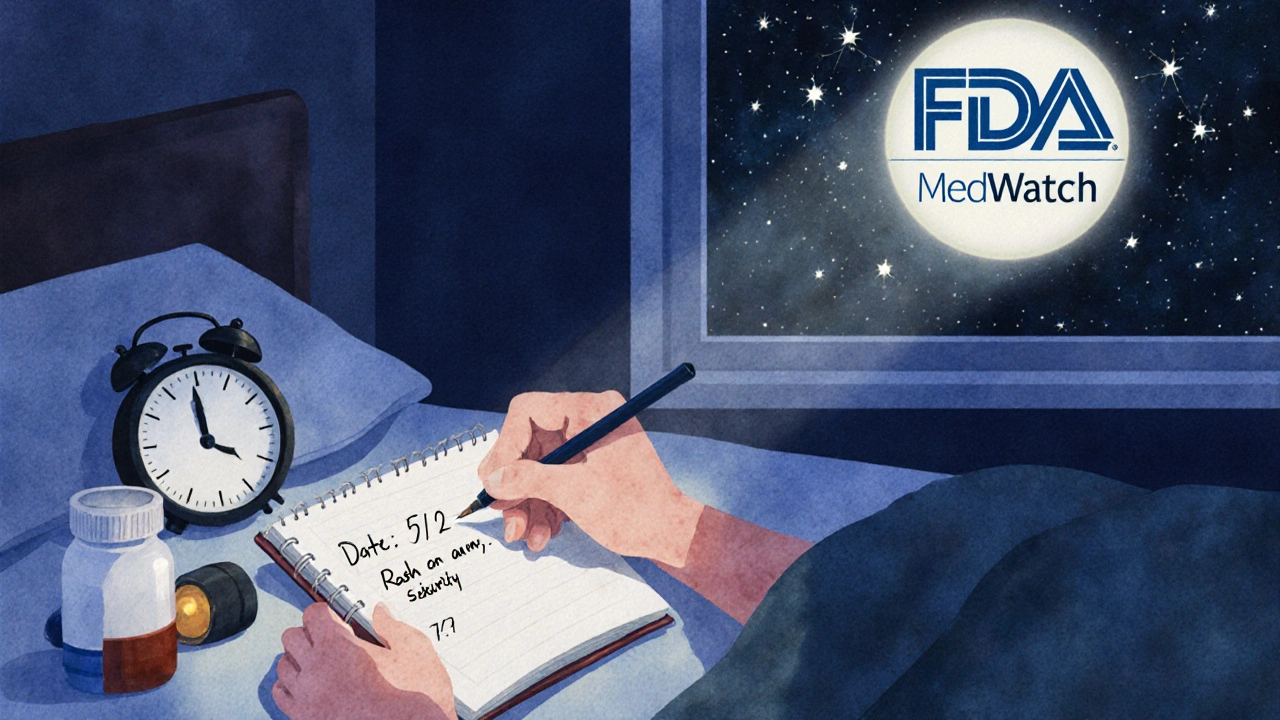
What Your Doctor Should Be Doing (But Often Isn’t)
Your doctor has an ethical duty to report side effects. The American Medical Association says so. But most don’t. Why? They’re overwhelmed. They don’t know how. Or they think, “It’s probably not serious.” A 2021 study found community pharmacists reported side effects at just 3.2% of the rate they should. At Mayo Clinic, after they added automated alerts in their electronic health system, doctor reporting jumped from 12% to 67%. That’s not magic - that’s better tools. If you tell your doctor about a side effect and they shrug it off - “That happens sometimes” - don’t let it go. Say: “Can you help me report this to the FDA?” If they hesitate, ask why. If they still won’t, report it yourself. You’re not overstepping. You’re protecting others.Why People Stay Silent - And How to Overcome It
A University of Michigan study found three big reasons people don’t speak up:- 58% fear being dismissed - They’ve been told “it’s all in your head” before.
- 72% don’t know how to report - They’ve never seen a form, never heard a number.
- 65% think it’s normal - “Everyone gets tired on this drug,” they tell themselves.
What Happens After You Report?
Nothing dramatic. No one will call you back. No one will thank you. That’s how the system works - quietly, slowly, but effectively. The FDA doesn’t investigate every report. But they look for patterns. If 20 people report the same strange reaction to the same drug, that’s a signal. That’s when the agency digs deeper. That’s when they update the warning label. That’s when they issue a safety alert. In 2023, the FDA started testing AI tools to scan electronic health records for hidden side effects. These tools found 27% more potential issues than traditional reporting. That means your report - even if it seems small - could be part of a pattern that AI picks up later.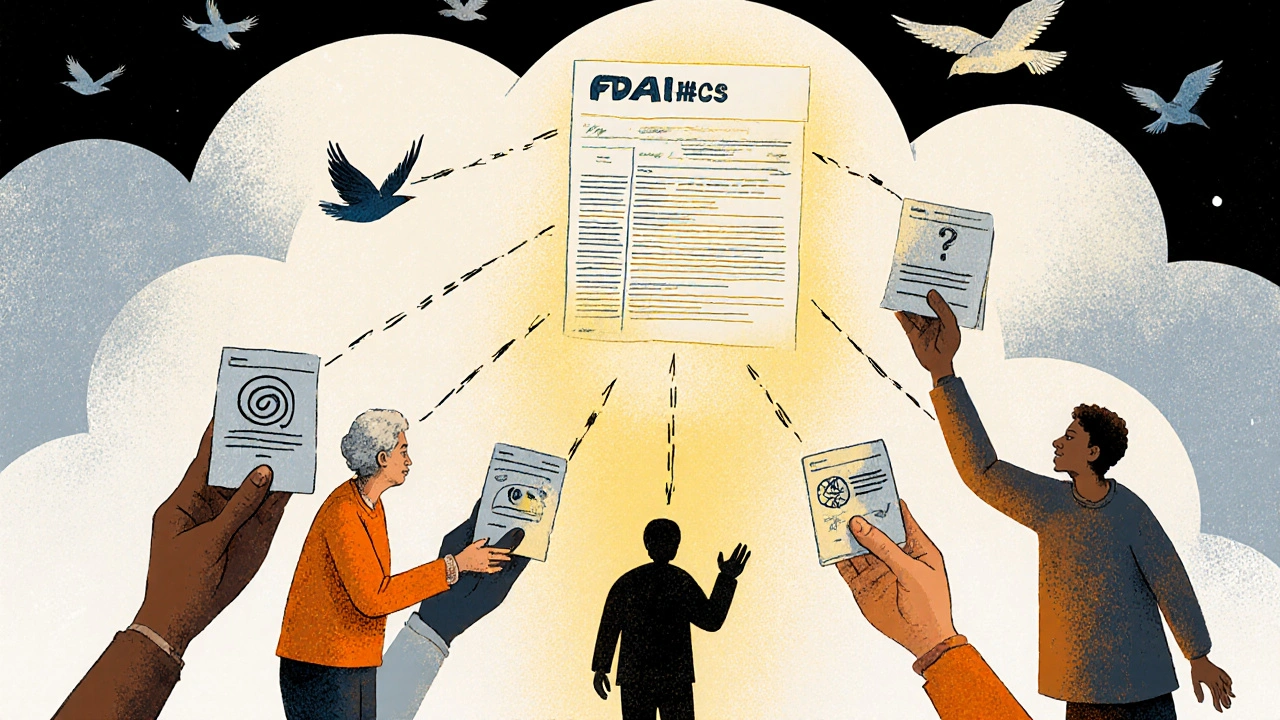
What You Can Do Today
You don’t need to wait for a crisis. Here’s what to do right now:- Check your prescription bottle - Look for the 1-800-FDA-1088 number. It’s on every new label.
- Write down side effects - Keep a simple log: date, symptom, severity (1-10), whether it got better or worse.
- Ask your pharmacist - They see hundreds of patients. They know what’s common and what’s not.
- Report even if you’re unsure - The FDA says: if you’re not sure if the drug caused it, report it anyway.
- Tell someone else - Share this info with family, friends, online groups. Most people don’t know they can do this.
Frequently Asked Questions
Can I report side effects if I’m not the patient?
Yes. Family members, caregivers, or even friends can report on behalf of someone else. You’ll need the patient’s name, the medication taken, and a description of the side effect. You don’t need legal permission, but you should have their consent if possible.
Will reporting affect my future prescriptions?
No. Your report is anonymous unless you choose to share your contact info. The FDA doesn’t share your name with your doctor or pharmacy. Your medical record stays private. Reporting doesn’t make you a “problem patient.” It makes you a safety advocate.
What if the side effect goes away on its own?
Still report it. Many serious side effects come and go before becoming dangerous. A temporary rash could be the first sign of a rare allergic reaction. A brief episode of confusion might be an early warning for a drug interaction. Don’t wait for it to get worse.
Do I need to prove the drug caused the side effect?
No. The FDA only needs to know the side effect happened after you took the medication. Causality is determined later by experts reviewing hundreds of similar reports. Your job is to report what happened - not to diagnose it.
Can I report side effects from over-the-counter drugs or supplements?
Yes. The FDA accepts reports for prescription drugs, over-the-counter medicines, vitamins, herbal supplements, and even some medical devices. Many serious reactions come from things people think are “safe” because they’re sold without a prescription.

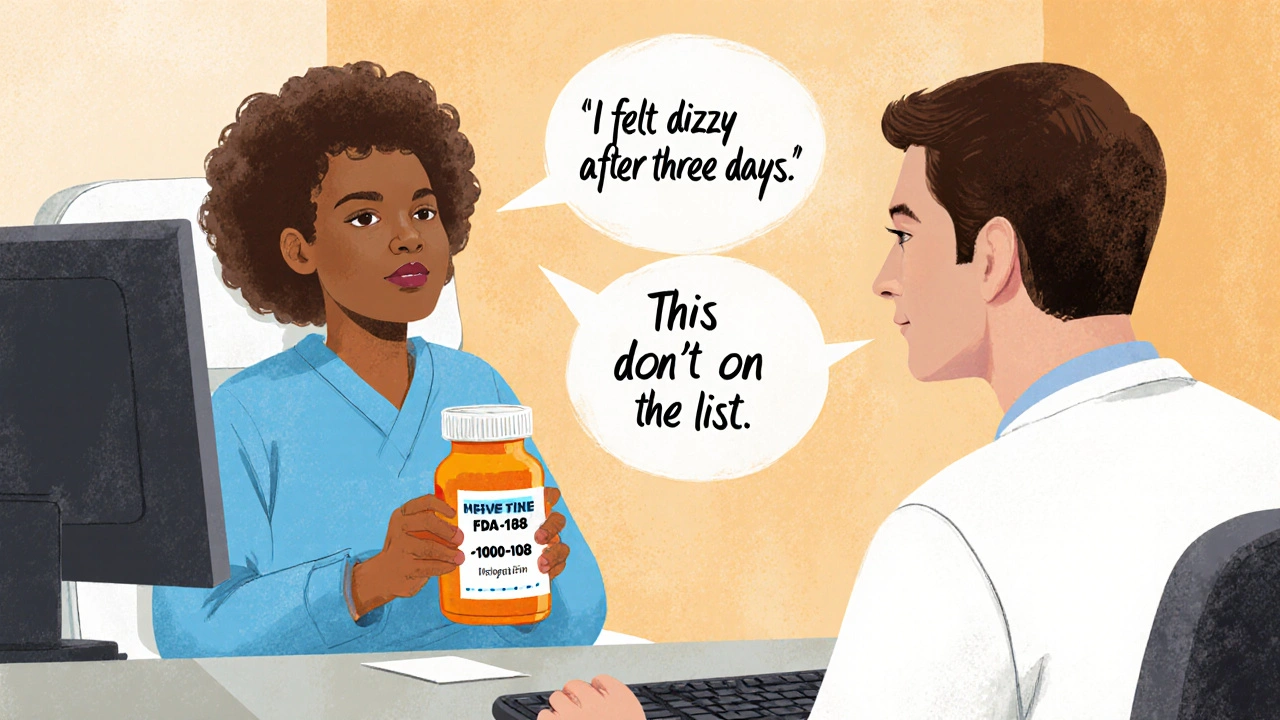
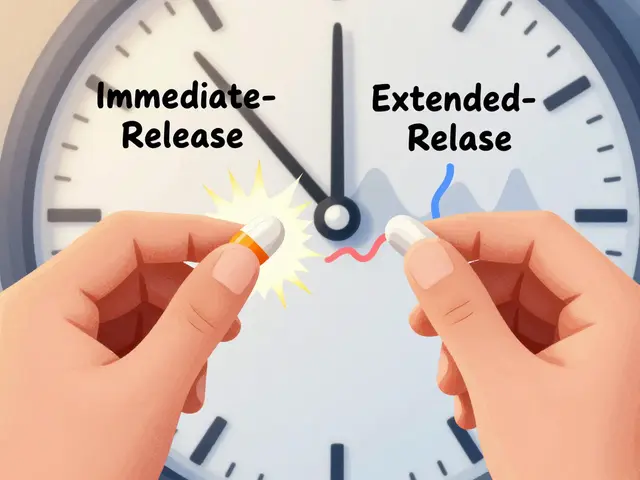
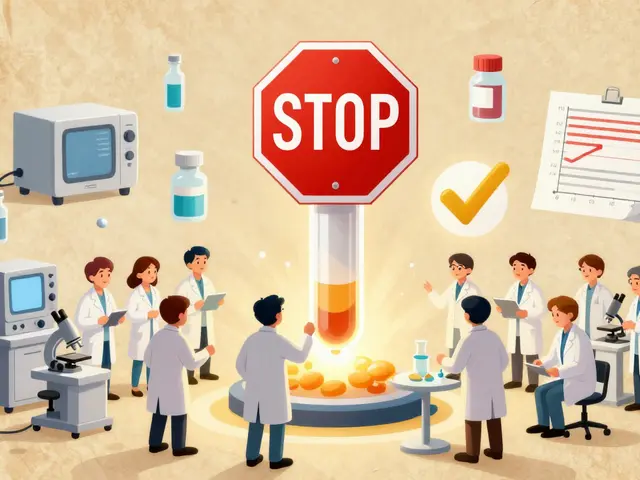
Pramod Kumar
22 Nov 2025 at 05:36Man, this hit different. I remember taking that antidepressant and feeling like my brain was full of static - no one asked, no one cared. Then I wrote a note to my pharmacist and they said, 'We’ve seen this before, but nobody ever tells us.' Turns out, I wasn’t alone. Reporting it felt like throwing a stone in a dark well and hearing a splash. That splash? That’s someone else’s life getting saved next time.